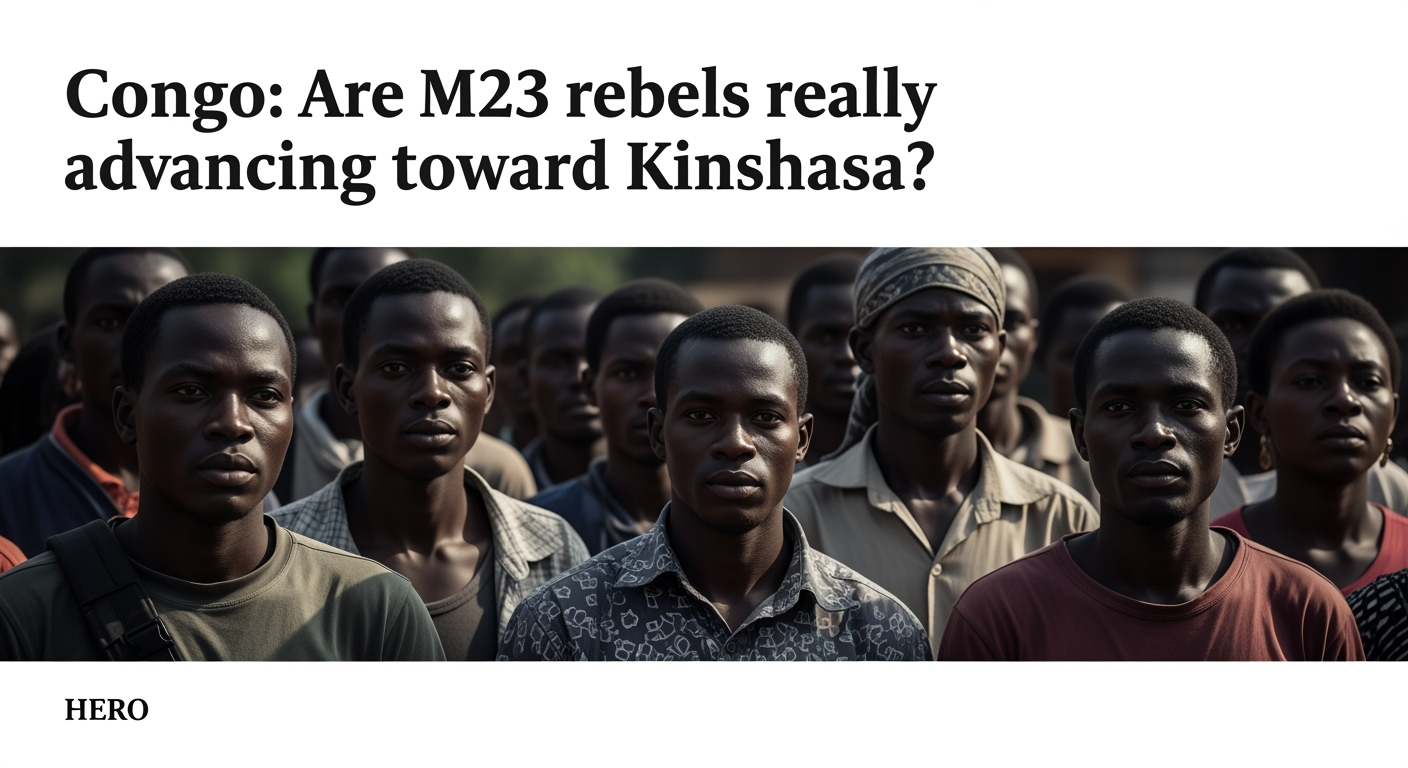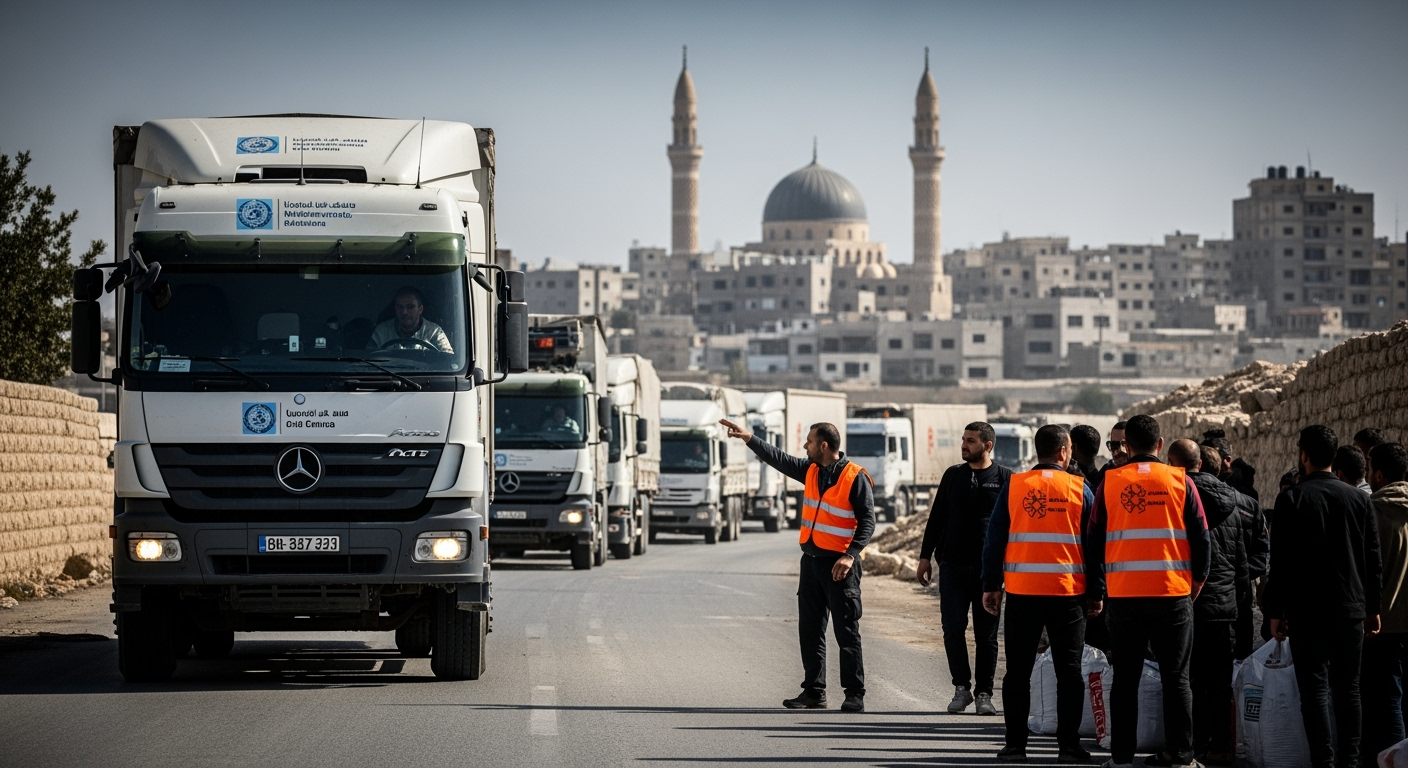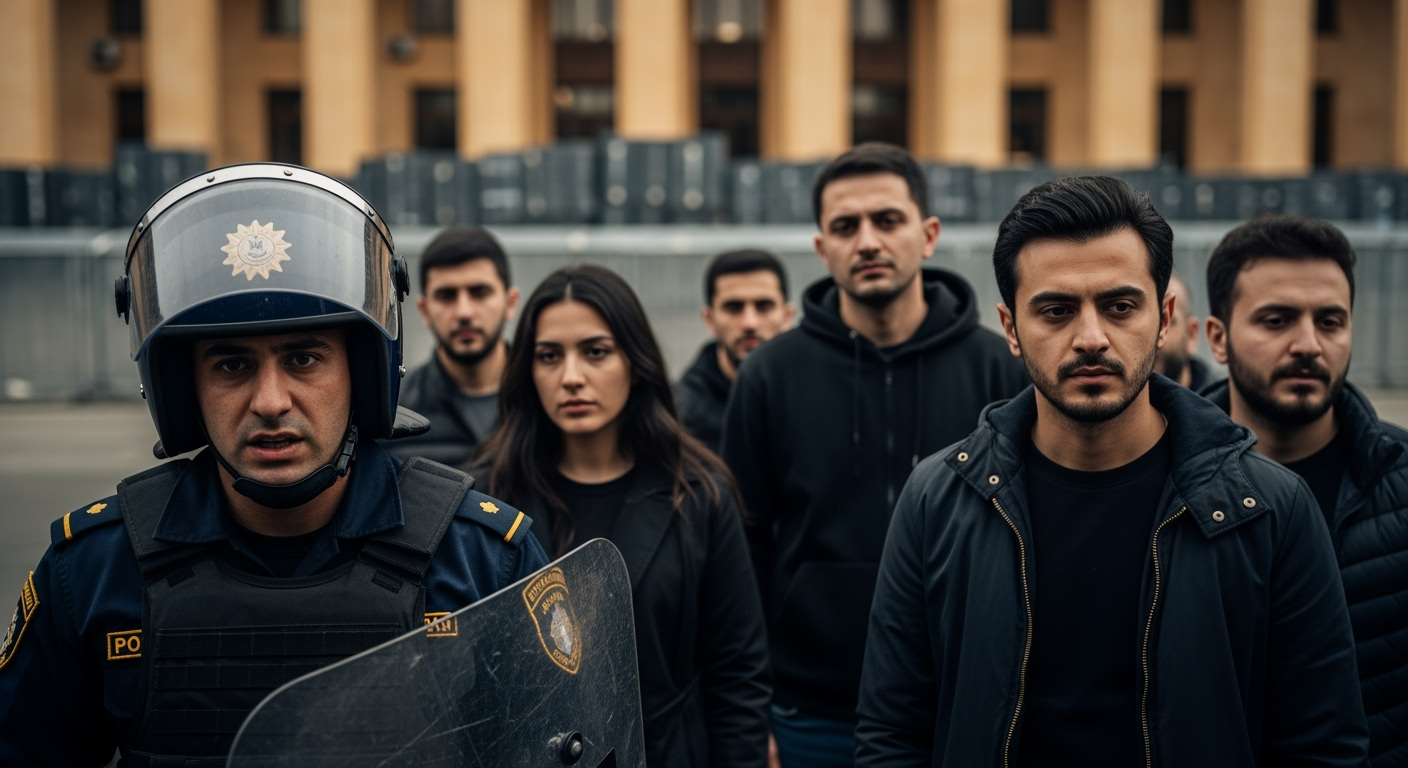Related Articles

M23 Rebels Intensify Eastern Offensive Amidst Rhetoric of March to Kinshasa

Turkey Emerges as Critical Player in Gaza Ceasefire Diplomacy





TBILISI, Georgia – Georgia's government has significantly escalated its measures against civic society and independent media, implementing a contentious "foreign agent" law that has triggered sustained mass protests and drawn sharp condemnation from international partners. The legislation, which critics denounce as a replication of repressive Russian laws, mandates that non-governmental organizations and media outlets receiving more than 20% of their funding from abroad register as "organizations carrying the interests of a foreign power," effectively stigmatizing and restricting their operations. This decisive move by the ruling Georgian Dream party has plunged the South Caucasus nation into a profound domestic crisis, imperiling its democratic trajectory and its long-held aspirations for integration into the European Union.
The roots of the current unrest trace back to March 2023, when the Georgian Dream party first introduced a similar bill. That initial attempt was met with a powerful wave of public opposition, characterized by large-scale demonstrations in Tbilisi. The intensity of the protests, coupled with widespread international outcry, compelled the government to withdraw the proposed legislation. However, the reprieve proved temporary. In April 2024, the ruling party controversially revived the bill, albeit with a slightly altered name, asserting its necessity for transparency and national security. Government officials, including Prime Minister Irakli Kobakhidze, maintained that the law was designed to bring greater accountability to the NGO sector and guard against undue foreign influence, despite already having extensive visibility over NGO funding through existing regulations. Critics, both domestically and internationally, swiftly rejected this rationale, pointing to striking similarities between the Georgian legislation and laws employed by the Russian government to suppress independent voices and dissent. They argued that the law would serve to stifle critical voices, curtail media freedom, and ultimately align Georgia more closely with authoritarian regimes.
The reintroduction of the "foreign agent" bill ignited a renewed and even more fervent protest movement across Georgia. Tens of thousands of citizens, predominantly young people, took to the streets of Tbilisi and other major cities, often waving Georgian, European Union, and Ukrainian flags. Their chants of "No to the Russian law" underscored a clear rejection of the government's policy and an unwavering commitment to a pro-Western, democratic future. The government's response to these demonstrations was characterized by a severe and often violent clampdown. Police forces employed disproportionate measures to disperse crowds, including tear gas, water cannons, stun grenades, pepper spray, and, on at least one occasion, rubber bullets. Numerous protesters were arrested, with hundreds detained on minor charges, and many subsequently fined after what human rights groups described as perfunctory trials. Reports of beatings and ill-treatment in detention facilities were widespread, leading to dozens requiring hospitalization. Human Rights Watch, in its 2025 World Report, noted a significant deterioration in human rights throughout Georgia in 2024, directly attributing it to the adoption of repressive legislation and the violent suppression of peaceful protests. The ruling party, meanwhile, accused the opposition of attempting to "overthrow the constitutional order" and portrayed the protests as coordinated and funded from abroad, pledging to "completely neutralize foreign agents."
The passage and implementation of the "foreign agent" law have had profound implications both within Georgia and on its international standing. Domestically, civil society organizations and independent media are now confronting a climate of fear and operational uncertainty. The law imposes onerous reporting requirements, creating a mechanism for increased governmental scrutiny and potential harassment. Beyond the "foreign agent" law, civil society organizations reported a systematic crackdown on peaceful protesters following the disputed parliamentary elections in October 2024. This broader repressive environment included the use of criminal justice mechanisms against demonstrators, with ongoing court cases reflecting what critics argue is "political persecution."
Internationally, the legislation has drawn strong condemnation from Georgia's key Western partners. The European Union has unequivocally labeled the law as a "serious setback" for the country's democratic foundations and explicitly warned that it jeopardizes Georgia's accession process to the bloc. EU officials stated that the accession process has been "de facto halted" and indicated a readiness to downgrade political contacts and consider freezing financial assistance to the Georgian government. Josep Borrell, the EU's chief diplomat, underscored that Georgia's path to membership could be "closed" if the government continues its current trajectory. The United States has also voiced strong criticism, with reports indicating potential sanctions against Georgian officials for undermining the country's democratic and Euro-Atlantic future. These warnings highlight a critical juncture for Georgia, as its government's actions appear to be actively undermining the very European future its populace overwhelmingly desires.
The ongoing political turmoil, exacerbated by the "foreign agent" law and the subsequent crackdowns, places Georgia at a precarious crossroads. Following the parliamentary elections in October 2024, which the opposition widely regarded as fraudulent, the ruling party's actions intensified. Prime Minister Kobakhidze accused protesters of seeking to topple his government and vowed a further crackdown on dissent. This stance, coupled with the suspension of high-level contacts with the EU, signals a deepening rift between the Georgian government and its Western allies. Civil society organizations and human rights groups continue to document widespread human rights violations, including arbitrary arrests and the criminalization of peaceful protest. The country's democratic institutions are perceived to be under increasing pressure, with concerns about surveillance expansion and restrictive laws. While the Georgian Dream party maintains its commitment to a European future "with peace, dignity, and prosperity," its actions are widely seen as aligning more closely with Russian-style authoritarianism, challenging the core values of European integration.
The future trajectory of Georgia hinges on the resolution of this profound internal conflict. The widespread public desire for European integration stands in stark contrast to the government's legislative and repressive measures. As international pressure mounts and domestic protests persist, the country faces a critical choice between its stated Euro-Atlantic aspirations and a path that risks isolation and a severe erosion of democratic freedoms. The coming months will be crucial in determining whether Georgia can navigate this crisis and reaffirm its commitment to democratic principles and a European future.